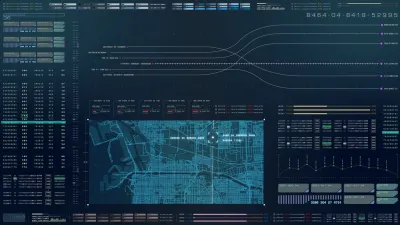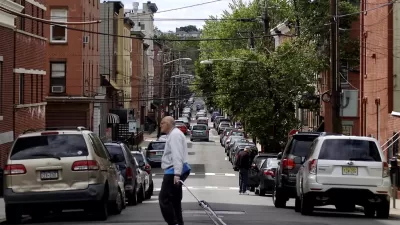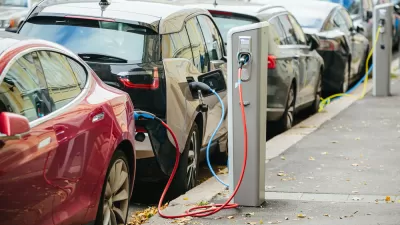The opportunities from data-driven innovations are wide, but many communities experiencing the data divide are without access to or reporting of high-quality data, furthering them from these benefits.
A recent report by Daniel Castro titled, "The Rise of Data Poverty in America," outlines the social and economic inequalities manifested from a lack of data collection or reporting about an individual or community. Castro begins with a poignant example of childbirth— when leaving the hospital, some children will have generated 200 million data points, while others merely leave with an inked footprint on paper, but no digital markers.
Castro urges that policymakers today address the data divide splitting the United States. Indeed, as Castro writes, "if this trend towards a data divide continues we might even see the rise of 'data deserts'— areas of the country characterized by a lack of access to high-quality data that may be used to generate social and economic benefits."
Some steps to achieve this, according to Castro, are to ensure funding programs consider the impact on data poverty, continue data literacy programs, and encourage civic leaders in low-income neighborhoods to integrate technological solutions into their grant programs.
FULL STORY: The Rise of Data Poverty in America

Alabama: Trump Terminates Settlements for Black Communities Harmed By Raw Sewage
Trump deemed the landmark civil rights agreement “illegal DEI and environmental justice policy.”

Planetizen Federal Action Tracker
A weekly monitor of how Trump’s orders and actions are impacting planners and planning in America.

The 120 Year Old Tiny Home Villages That Sheltered San Francisco’s Earthquake Refugees
More than a century ago, San Francisco mobilized to house thousands of residents displaced by the 1906 earthquake. Could their strategy offer a model for the present?

In Both Crashes and Crime, Public Transportation is Far Safer than Driving
Contrary to popular assumptions, public transportation has far lower crash and crime rates than automobile travel. For safer communities, improve and encourage transit travel.

Report: Zoning Reforms Should Complement Nashville’s Ambitious Transit Plan
Without reform, restrictive zoning codes will limit the impact of the city’s planned transit expansion and could exclude some of the residents who depend on transit the most.

Judge Orders Release of Frozen IRA, IIJA Funding
The decision is a victory for environmental groups who charged that freezing funds for critical infrastructure and disaster response programs caused “real and irreparable harm” to communities.
Urban Design for Planners 1: Software Tools
This six-course series explores essential urban design concepts using open source software and equips planners with the tools they need to participate fully in the urban design process.
Planning for Universal Design
Learn the tools for implementing Universal Design in planning regulations.
Clanton & Associates, Inc.
Jessamine County Fiscal Court
Institute for Housing and Urban Development Studies (IHS)
City of Grandview
Harvard GSD Executive Education
Toledo-Lucas County Plan Commissions
Salt Lake City
NYU Wagner Graduate School of Public Service





























